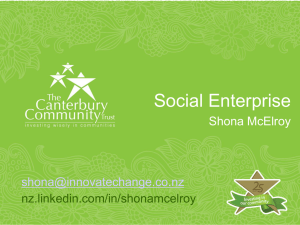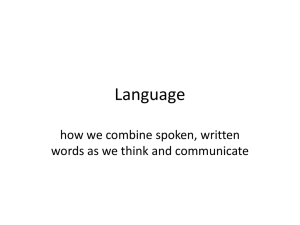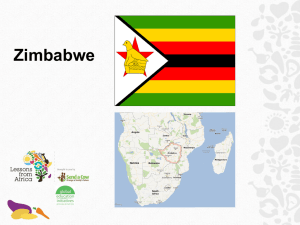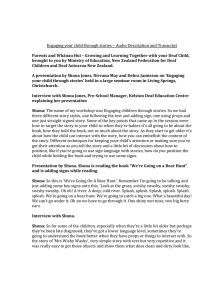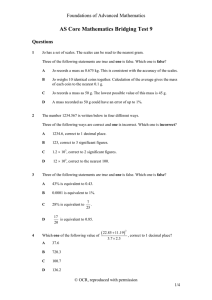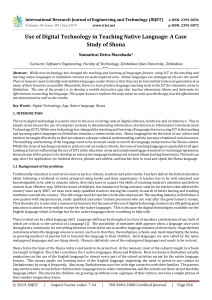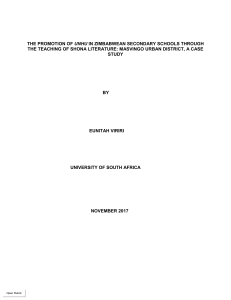A: Let`s take a look at the Shona language as you teach it
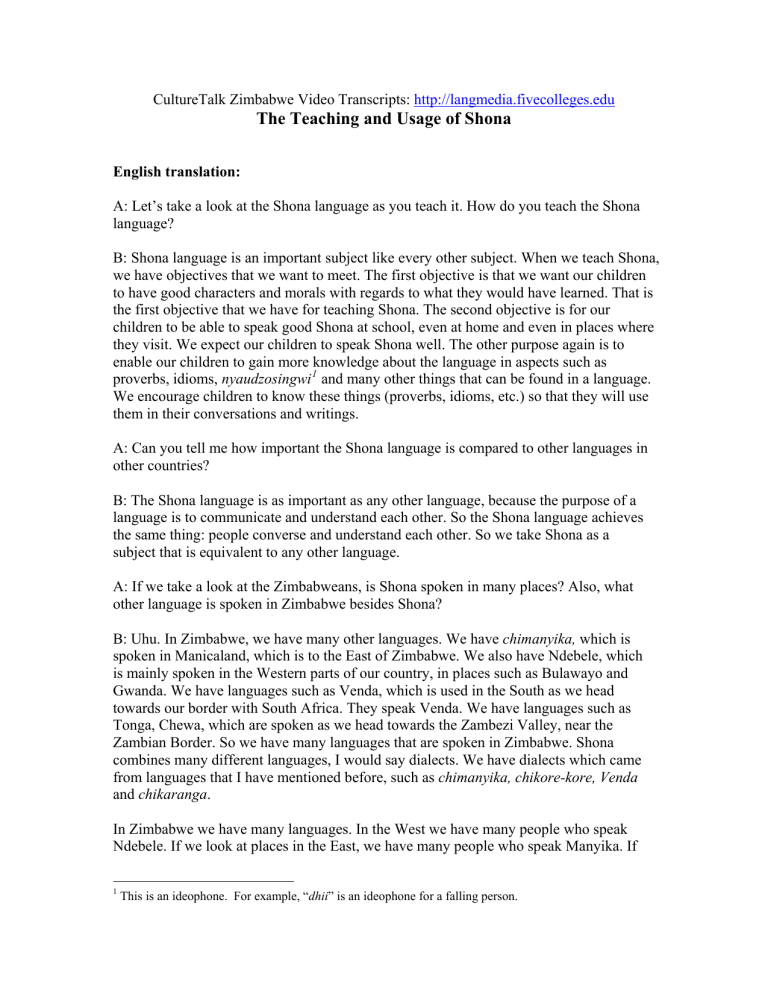
CultureTalk Zimbabwe Video Transcripts: http://langmedia.fivecolleges.edu
The Teaching and Usage of Shona
English translation:
A: Let’s take a look at the Shona language as you teach it. How do you teach the Shona language?
B: Shona language is an important subject like every other subject. When we teach Shona, we have objectives that we want to meet. The first objective is that we want our children to have good characters and morals with regards to what they would have learned. That is the first objective that we have for teaching Shona. The second objective is for our children to be able to speak good Shona at school, even at home and even in places where they visit. We expect our children to speak Shona well. The other purpose again is to enable our children to gain more knowledge about the language in aspects such as proverbs, idioms, nyaudzosingwi
and many other things that can be found in a language.
We encourage children to know these things (proverbs, idioms, etc.) so that they will use them in their conversations and writings.
A: Can you tell me how important the Shona language is compared to other languages in other countries?
B: The Shona language is as important as any other language, because the purpose of a language is to communicate and understand each other. So the Shona language achieves the same thing: people converse and understand each other. So we take Shona as a subject that is equivalent to any other language.
A: If we take a look at the Zimbabweans, is Shona spoken in many places? Also, what other language is spoken in Zimbabwe besides Shona?
B: Uhu. In Zimbabwe, we have many other languages. We have chimanyika, which is spoken in Manicaland, which is to the East of Zimbabwe. We also have Ndebele, which is mainly spoken in the Western parts of our country, in places such as Bulawayo and
Gwanda. We have languages such as Venda, which is used in the South as we head towards our border with South Africa. They speak Venda. We have languages such as
Tonga, Chewa, which are spoken as we head towards the Zambezi Valley, near the
Zambian Border. So we have many languages that are spoken in Zimbabwe. Shona combines many different languages, I would say dialects. We have dialects which came from languages that I have mentioned before, such as chimanyika, chikore-kore, Venda and chikaranga .
In Zimbabwe we have many languages. In the West we have many people who speak
Ndebele. If we look at places in the East, we have many people who speak Manyika. If
1
This is an ideophone. For example, “ dhii ” is an ideophone for a falling person.
we look at the South of our country, where we boarder with South Africa, we have people who speak Venda. We also have people who speak Tonga in the Zambezi Valley, near the Zimbabwe-Zambia border. So we also have other languages that are spoken in
Zimbabwe such as Kalanga and Chewa. Basically, these are the languages that are spoken in this country.
A: Ok
About CultureTalk: CultureTalk is produced by the Five College Center for the Study of World
Languages and housed on the LangMedia Website. The project provides students of language and culture with samples of people talking about their lives in the languages they use every day. The participants in
CultureTalk interviews and discussions are of many different ages and walks of life. They are free to express themselves as they wish. The ideas and opinions presented here are those of the participants.
Inclusion in CultureTalk does not represent endorsement of these ideas or opinions by the Five College
Center for the Study of World Languages, Five Colleges, Incorporated, or any of its member institutions:
Amherst College, Hampshire College, Mount Holyoke College, Smith College and the University of
Massachusetts at Amherst.
© 2013 Five College Center for the Study of World Languages and Five Colleges, Incorporated
